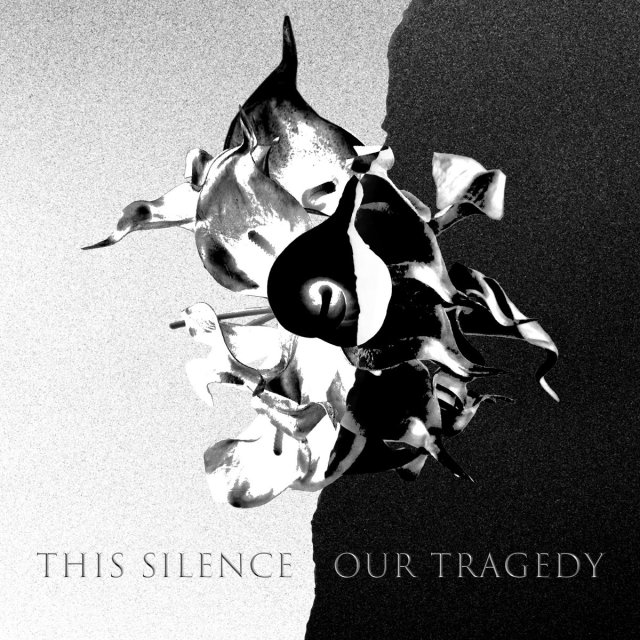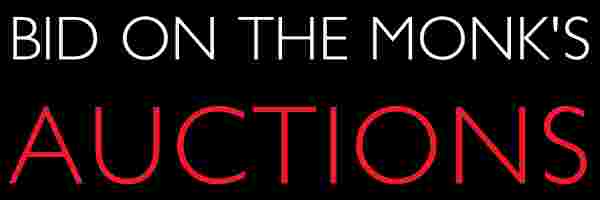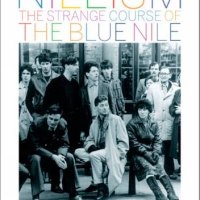Elektric Music: Crosstalk GER CD5 [1992]
- Crosstalk
- Intercomix
- Baby Come Back
Context can change everything. In 1981, Kraftwerk released what is largely considered the last of their “imperial period” albums. Then, the progress of this most progressive of bands seemed to falter greatly. A follow up album was scheduled a few years later, then mysteriously vanished. Only the “Tour De France” single ultimately appeared between 1981 and 1986, when the mediocre “Electric Cafe” album finally arrived. After another stately five year period following that, Kraftwerk had labored mightily and had released the Karl Bartos-free album of largely inferior remakes known as “The Mix.” Kraftwerk’s stock was definitely in decline! Bartos had left the band in 1990 and the fruits of his teamup with Lothar [Rheingold] Manteuffel first manifested to my eyes when I saw an ad in Goldmine Magazine touting a Karl Bartos solo single! We jumped right onto that and when it came in the mail we were eager to hear what he had to offer.
The disc depicted Bartos and Manteuffel against a a similar painted sky backdrop [courtesy of fellow Kraftwerk-escapee designer/lyricist Emil Schult] and the same modern Futura Medium typography that Schult had used on the iconic “Autobahn” cover. The inner fold of the digipak featured a dramatic view of power lines. So it was pastiching past glories. Definitely. How did it stack up to the hype? Pretty strongly! A human voice urgently proclaimed “I’m talking to you ” and this could have been either Bartos or Manteuffel; the credits were sparse. The synthetics were thick and zesty; a far cry from the bloodless work that Kraftwerk had been releasing after 1981. The synths were used with real heft; making this closer to rock music than the more abstract and diffuse proto-techno that Kraftwerk were making of late.
The synth leads were not a million miles away from distorted guitars. Most of the vocals were vocoded; the human voices in the intro were a red herring. Percussive samples of the same voice as in the intro would be interjected into the mix with samples of “chok!” or “peng!” [note: this seems to be the German equivalent to “bang!”]. The CD singles listed a 3:33 running time but the actual track on the disc was 5:54. At the time, I thought this was an extended mix, but the subsequent album carried the same version. The music sounded more like what I had imagined music coming after “Computerworld” might have sounded, with the proviso that it was not as dance oriented as Kraftwerk had become in their old age.
 I thought that “Intercomix” might have been a new B-side, but it turned out to be a shorter remix of the A-side. This time the arrangement was less aggressive and the only vocals on it were vocoded. I could not call it a dub mix since the vocoder vocals were in full evidence, but that was almost how the mix played out. Finally, the actual non-LP B-side was a cut I was familiar with from the NME “Ruby Trax” charity compilation that was out around the same time. That was 40 bands covering 39 UK number one hits and “Vienna” [which only ever got to #2]. Elektric Music covered “Baby Come Back” the energetic pop/rock hit penned by a young Eddy Grant in the late 60s when he was based in the UK with his band The Equals.
I thought that “Intercomix” might have been a new B-side, but it turned out to be a shorter remix of the A-side. This time the arrangement was less aggressive and the only vocals on it were vocoded. I could not call it a dub mix since the vocoder vocals were in full evidence, but that was almost how the mix played out. Finally, the actual non-LP B-side was a cut I was familiar with from the NME “Ruby Trax” charity compilation that was out around the same time. That was 40 bands covering 39 UK number one hits and “Vienna” [which only ever got to #2]. Elektric Music covered “Baby Come Back” the energetic pop/rock hit penned by a young Eddy Grant in the late 60s when he was based in the UK with his band The Equals.
This was a very sprightly electronic cover of a pure pop song, with either samples of a young woman saying “no” and “why” and sounding not a million miles away from the same effect on OMD’s “Tesla Girls” single. The “male vocals” were vocoded with some expressive pitch bending and portamento used on them. When the vocoded voice pleaded “pleeeeeease?” it sounded just perfect. The gridlike, quantized production sounded much more “assembly line” than “Crosstalk” did but it suited the song; it being more of a pop confection from the very start. With this on the single, I never bothered getting the [costly] “Ruby Trax” 3xCD set at the time, though I subsequently began collecting Suede and Curve, so if I can get a cheap copy in my sights I may still go for it.
Elektric Music was a big hit for me right out of the chute. It seemed here like the mix of Bartos and Manteuffel [with Emill Schult providing lyrics as he had in Kraftwerk] made for a far more exciting product than what the Kraftwerk mothership was interested in making by this point. This was modern electronic music that retained the excitement of an earlier era. Karl Bartos had shown here that there was much more to him than the gent who played rhythms in Kraftwerk. Of course, he had been instrumental in writing the music for the “Man Machine” to “Electric Cafe” albums, but the Ralf + Florian duo always seemed to overshadow the two percussionists in that band. Away from Kraftwerk, he was now ready to produce a body of work that refused to succumb to doubt and overwork as Kraftwerk apparently had.
– 30 –







![Chris Cross: 1952-2024 [part 2]](https://postpunkmonk.files.wordpress.com/2024/04/ultravox-cross.jpg?w=200&h=200&crop=1)

![Forty Years Ago Today, Simple Minds Changed Everything with "New Gold Dream [81,82,83,84]"](https://postpunkmonk.files.wordpress.com/2022/09/new-gold-dream-in-spotlights.jpg?w=200&h=200&crop=1)


That first Elektric music album and associated singles are really something special aren’t they.
LikeLike
jsd – !993 was probably the last year that I had a “favorite album of the year” and it was definitely “Esperanto!” I have all of the CD singles but still need the 12″/10″ singles for the few mixes I still don’t have. I never got the “Communication” album because of its timing. I bought almost no music in 2003.
LikeLike
I love Kraftwerk, and so i look skeptically at all these offshoots and side projects.
To me, its just the opposite, the original Kraftwerk albums all are the technological
marvels for their times. To me, each one has its place, and context which suit the
era.
Yes, i got this album, and the cd-singles, i did not however follow up on the much
weaker follow-up album.On one hand, some of the tracks are decent, but the major
problem and issue i have with it, is he is trying way too hard to emulate kraftwerk,
and this just doesn’t have it’s own sound at all. It’s basically just a tribute to them,
and not very well done either. The originality just isn’t there, the themes are old,
the lyrics, the vocoders, everything is just a pale imitation of the real thing.
Yes, I did get some of the singles, as a completist, and probably get more in
the future. Keep your eye out for the ultra-rare Minidisc single of TV. I didn’t
even know they existed until recently.
later
-1
LikeLike
negative1ne – I loved Kraftwerk but I am dubious of every move since 1981. Their insularity has not worked for me. I don’t see that as a way for art to retain and expand on vitality, but I wrote a whole series on this years ago. I saw Bartos as a key factor in the band’s development post-“Autobahn.” His writing is all over half of their four best albums and his contribution can’t be undermined. And “Telephone Call” was the peak of “Electric Café” for me. I don’t see “Esperanto” as trying to be Kraftwerk as much as taking the band’s sound elsewhere. Some of it was more intense dance music but others touched on rock and pop in ways that Kraftwerk never would have. So I have to differ.
LikeLike